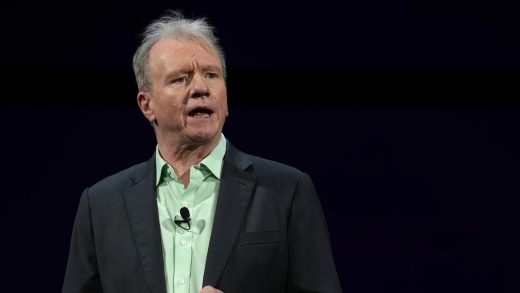:format(webp)/https://www.thestar.com/content/dam/thestar/entertainment/2023/02/21/roald-dahl-book-revisions-spark-controversy-as-phrases-like-fat-and-crazy-were-removed/roald_dahl.jpg)
New editions of classic works by British children’s author Roald Dahl have been rewritten to remove language deemed offensive and make the texts more inclusive, according to a spokesperson from the Roald Dahl Story Company.
The changes, however — of which there are hundreds spanning across Dahl’s catalogue — have drawn widespread criticism from readers, authors and even politicians.
The Telegraph, a British newspaper, first reported last Friday that hundreds of words in Dahl’s original texts had been changed or removed. References to characters’ races, genders and physical appearances, in particular, were heavily edited.
In “Charlie and the Chocolate Factory,” for instance, the Oompa-Loompas are no longer “small men” but rather “small people,” according to The Telegraph, while the word “fat” has also been removed from every book.
References to “female” characters have also been cut; Miss Trunchbull in “Matilda,” for example, previously referred to as a “most formidable female”, is now a “most formidable woman,” The Telegraph reported.
Additionally, the newspaper found that the new edition has removed “crazy” and “mad,” exchanging them with words that are more sensitive to mental health.
(The Toronto Star has not independently verified all the revisions in the new editions.)
In a statement to the Toronto Star, a spokesperson for the Roald Dahl Story Company, which manages Dahl’s trademarks and copyrights, said the changes have been “small and carefully considered.”
“We want to ensure that Roald Dahl’s wonderful stories and characters continue to be enjoyed by all children today,” the statement read. “Our guiding principle throughout has been to maintain the storylines, characters, and the irreverence and sharp-edged spirit of the original text.”
The review started in 2020 and was led by the Roald Dahl Story Company and publisher Puffin, the organization said. The emailed statement added the review process was done in partnership with Inclusive Minds, “a collective for people who are passionate about inclusion and accessibility in children’s literature.”
In a statement to the Star, Inclusive Minds said they work with the children’s books world “to support them in authentic representation.” The organization stressed they do not write, edit or rewrite texts, but provide creators with insight from people with “relevant lived experience” that they can take into consideration.
It’s not about “cutting potentially controversial content but rather about including and embedding authenticity and inclusive voices and experiences from the outset,” they said in the emailed statement.
Puffin did not immediately respond to questions about the changes.
The revisions, however, have sparked outrage among the public, with some arguing the changes have gone too far and stripped away the colour from Dahl’s beloved works.
Salman Rushdie, the award-winning novelist of “The Satanic Verses” and “Midnight’s Children,” said the edits amounted to “absurd censorship,” though acknowledging the late British author was “no angel.”
A spokesperson for Prime Minister Rishi Sunak of Britain has weighed in on the controversy, telling the BBC that works of fiction should be “preserved and not airbrushed.”
“When it comes to our rich and varied literary heritage, the prime minister agrees with the BFG that we shouldn’t gobblefunk around with words,” the spokesperson said, borrowing a word invented by Dahl.
Canadian MP Anthony Housefather also waded into the debate, tweeting Monday: “As a child, I loved the Roald Dahl books. They represented the time in which they were written in and inspired imagination. We cannot go back and apply today’s standards to classic literature. Teachers & parents can provide context but we should read the books as written.”
Others, however, have defended the changes in the new editions. Speaking with the BBC World Service, British poet and author Debjani Chatterjee said it’s a “very good thing” that publishers are reviewing Dahl’s work.
“I think it’s been done quite sensitively,” she said. “Take the word ‘fat’. They’ve used ‘enormous’. If anything, I actually think ‘enormous’ is even funnier.”
Dahl, who died in 1990, is one of the world’s most popular authors of children’s novels. More than 300 million copies of his books have been sold, according to the Roald Dahl Story Company, which was acquired by Netflix in 2021.
But the British author has a complicated legacy, having been embroiled in controversy throughout his career and after his death. A self-avowed antisemite, Dahl made several disparaging remarks about Jewish people throughout his lifetime.
His family has since apologized for those comments. A statement on the Roald Dahl Story Company website reads: “The Dahl family and the Roald Dahl Story Company deeply apologise (sic) for the lasting and understandable hurt caused by Roald Dahl’s antisemitic statements.”
“Those prejudiced remarks are incomprehensible to us and stand in marked contrast to the man we knew and to the values at the heart of Roald Dahl’s stories, which have positively impacted young people for generations.”
JOIN THE CONVERSATION



